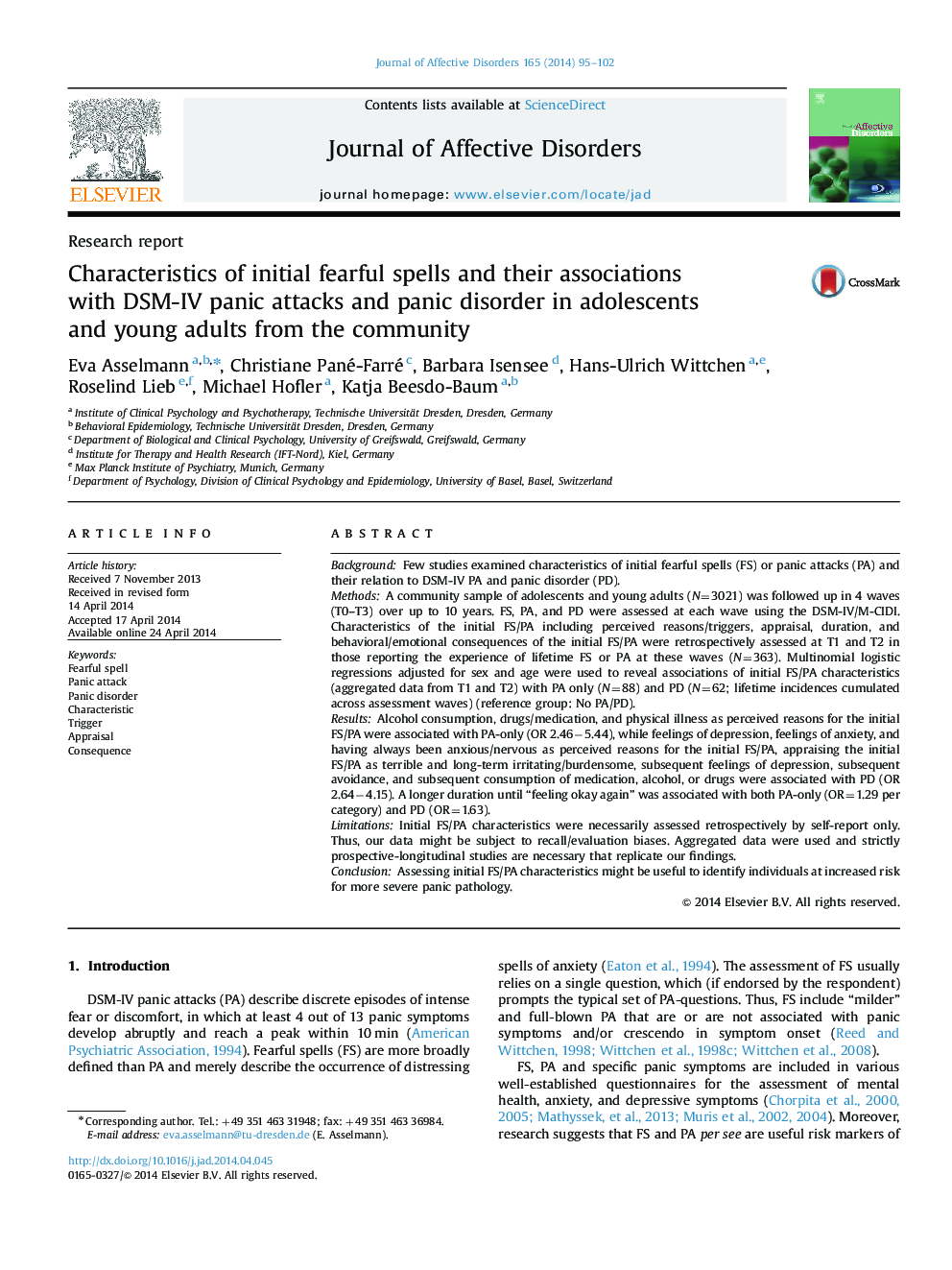| Article ID | Journal | Published Year | Pages | File Type |
|---|---|---|---|---|
| 4185997 | Journal of Affective Disorders | 2014 | 8 Pages |
BackgroundFew studies examined characteristics of initial fearful spells (FS) or panic attacks (PA) and their relation to DSM-IV PA and panic disorder (PD).MethodsA community sample of adolescents and young adults (N=3021) was followed up in 4 waves (T0–T3) over up to 10 years. FS, PA, and PD were assessed at each wave using the DSM-IV/M-CIDI. Characteristics of the initial FS/PA including perceived reasons/triggers, appraisal, duration, and behavioral/emotional consequences of the initial FS/PA were retrospectively assessed at T1 and T2 in those reporting the experience of lifetime FS or PA at these waves (N=363). Multinomial logistic regressions adjusted for sex and age were used to reveal associations of initial FS/PA characteristics (aggregated data from T1 and T2) with PA only (N=88) and PD (N=62; lifetime incidences cumulated across assessment waves) (reference group: No PA/PD).ResultsAlcohol consumption, drugs/medication, and physical illness as perceived reasons for the initial FS/PA were associated with PA-only (OR 2.46−5.44), while feelings of depression, feelings of anxiety, and having always been anxious/nervous as perceived reasons for the initial FS/PA, appraising the initial FS/PA as terrible and long-term irritating/burdensome, subsequent feelings of depression, subsequent avoidance, and subsequent consumption of medication, alcohol, or drugs were associated with PD (OR 2.64−4.15). A longer duration until “feeling okay again” was associated with both PA-only (OR=1.29 per category) and PD (OR=1.63).LimitationsInitial FS/PA characteristics were necessarily assessed retrospectively by self-report only. Thus, our data might be subject to recall/evaluation biases. Aggregated data were used and strictly prospective-longitudinal studies are necessary that replicate our findings.ConclusionAssessing initial FS/PA characteristics might be useful to identify individuals at increased risk for more severe panic pathology.
